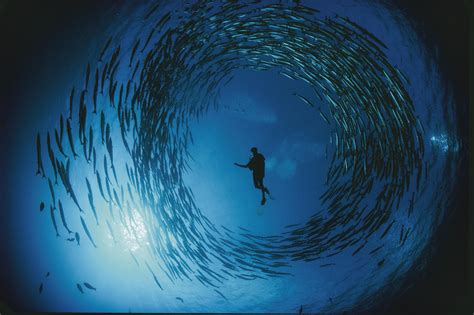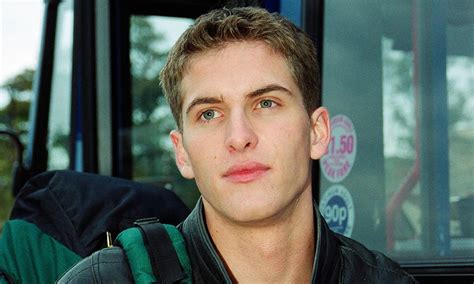Top 1033 Oceans And Seas Quotes & Sayings
Explore popular Oceans And Seas quotes.
Last updated on April 14, 2025.
A three billion year old planet floating in the vast universe with mountains, seventy percent seas and oceans, fertile lands, immense forests, rivers and lakes, sea shores and deserts, this is where we humans have the privilege to live, the latest, most advanced newcomers in evolution. What an immense, incredible responsibility we have to be a right, positive element in the further evolution of that planet. That is the big question before us in the new century and millennium.
Much of the attention on oceans has portrayed oceans as a villain. Warm water strengthened Hurricane Katrina that pounded Louisiana. Rising sea level will flood islands and coastal areas. Or, we're talking about new opportunities like a new shipping lane in the Arctic because of melting sea ice. These may be the obvious problems, but they're probably not the biggest ones.
Oil platforms are a technology for floating permanently on the high seas, and cruise ships are a technology for self-governance on the high seas, and if you combine these two technologies, imagine cruise ships that never dock but float permanently. Imagine if they were 10 times as big. Imagine if they were modular and could move about and you could choose the neighbours you wanted to live with.
As the country continues to dissect the recent natural disaster, we might want to start considering what about the disaster wasn't actually 'natural' at all. ... Human activity, the burning of fossil fuels, is causing global warming. Global warming is causing the oceans to warm. Warm oceans are steroids for storms.
Are coral reefs growing from the depths of the oceans? ... [The] reply is a simple negative; and a single fact establishes its truth. The reef-forming coral zoophytes, as has been shown, cannot grow at greater depths than 100 or 120 feet; and therefore in seas deeper than this, the formation or growth of reefs over the bottom is impossible.
Gentlemen, four-fifths of the earth's surface is covered by seas; that is unquestionably too much; the world's surface, the map of oceans and dry land, must be corrected. We shall give the world the workforce of the sea, gentlemen. This will no longer be the style of Captain van Toch; we shall replace the adventure story of pearls by the hymnic paean of labour.
Industrial vomit...fills our skies and seas. Pesticides and herbicides filter into our foods. Twisted automobile carcasses, aluminum cans, non-returnable glass bottles and synthetic plastics form immense middens in our midst as more and more of our detritus resists decay. We do not even begin to know what to do with our radioactive wastes - whether to pump them into the earth, shoot them into outer space, or pour them into the oceans. Our technological powers increase, but the side effects and potential hazards also escalate.
Far away in Montana, hidden from view by clustering mountain-peaks, lies an unmapped northwestern corner- the Crown of the Continent. The water from the crusted snowdrift which caps the peak of a lofty mountain there trickles into tiny rills, which hurry along north, south, east and west, and growing to rivers, at last pour their currents into three seas. From this mountain-peak the Pacific and the Arctic oceans and the Gulf of Mexico receive each its tribute. Here is a land of striking scenery.
I want to build a wired ocean that helps us take back the seas from poachers and illegal fishers. To do this, we need the latest technology applied to large pelagic fish and sharks, surveillance technology that helps protect marine protected areas, and tags that help prevent shark finning and illegal fishing. We must use modern sensors to help protect our seas!
Man is taking over the forests and polluting the oceans, the animal species are threatened. I try to contribute as much as I can. We're really messing up our environment. I try to get people more aware of what's going on so that they can, even in a local way, try to prevent pollution to their lakes and rivers and prevent nuclear dumping in the oceans - it's bad enough that they're doing it in residential areas, but putting it in the ocean! Eventually it's going to pollute our food resources and, if the ocean dies, we're gone.
All my life one of my greatest desires has been to travel-to see and touch unknown countries, to swim in unknown seas, to circle the globe, observing new lands, seas, people, and ideas with insatiable appetite, to see everything for the first time and for the last time, casting a slow, prolonged glance, then to close my eyes and feel the riches deposit themselves inside me calmly or stormily according to their pleasure, until time passes them at last through its fine sieve, straining the quintessence out of all the joys and sorrows.
To truly rid the oceans of plastic, what we need to do is two things: One, we need to clean up the legacy pollution, the stuff that has been accumulating for decades and doesn't go away by itself. But, two, we need to close the tap, which means preventing more plastic from reaching the oceans in the first place.
Oceans need more attention because climate change IS an ocean issue. Our oceans will be the first victim, and sea life will suffer dramatically. Detailed proof is hard in ocean science, but I think we're already seeing big ocean changes caused by climate change, such as starvation of whales, seabirds, and other animals off the coast US west coast.
We [the USA] do have a big nation's problem. We have the problem of a nation that's got two oceans, oceans on either side. People come from all across the globe and want to live here and they want to work here and they want to invest here. And that's a good thing. And they make up this country. But as a people, we [americans] are not highly skilled in languages. We're not highly skilled in knowledge of other cultures. And that's a problem.
Every flyer who ventures across oceans to distant lands is a potential explorer; in his or her breast burns the same fire that urged the adventurers of old to set forth in their sailing-ships for foreign lands. Riding through the air on silver wings instead of sailing the seas with white wings, he must steer his own course, for the air is uncharted, and he must therefore explore for himself the strange eddies and currents of the ever-changing sky in its many moods.
But there'll be plenty of room on Earth then because right now, what is it?-Only one-fifth of the Earth's surface is land, right? Whereas then there will be no more sea, it'll all be land, seas will be gone. The seas are the World's great septic tanks, its great cesspools, where all the waste of the World drains off into the sea.
Lately we have been getting facts pointing to the "oceanic" nature of the floor of so-called inland seas. Through geological investigations it has been definitely established that in its deepest places, for instance, the Caribbean Sea and the Gulf of Mexico, the Earth's crust is devoid of granite stratum. The same may be said quite confidently about the Mediterranean and the Black Sea. Could the interpretation of these data be that inland seas were the primary stage of the formation of oceanic basins?
For proponents of ecosystem-based management,the good news is that another new book, Ecosystem-based Management for the Oceans, conveys the topic at its state-of-the-art level of development...both Marine Ecosystems and Global Change and Ecosystem-based Management for the Oceans are valuable troves that could profitably be mined, and any academic bookshelf would wear them well.



















































